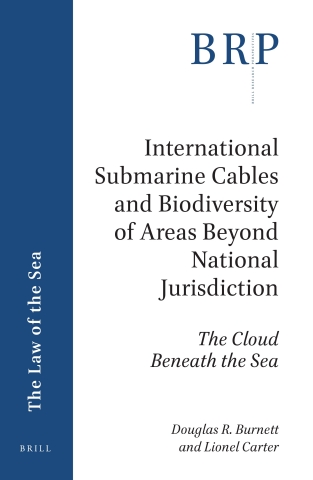LYMINGTON, United Kingdom--(BUSINESS WIRE)--There is much anticipation and anxiety in the air at the United Nations in New York City, USA this July. Many observers understand that a potentially very significant change in the international law regarding oceans looms ahead. The forthcoming PrepCom 4 meeting, held at the UN headquarters, will review many complex issues associated with activities on the high seas beyond national jurisdiction. Issues include both scientific and legal aspects arising under the United Nations Law of the Sea Convention (UNCLOS)—one of the world’s most successful pieces of international legislation.
Of vital importance is the status of the freedom to lay and repair international cables on the high seas—a tenet presently well established under UNCLOS and customary international law and relied upon by the submarine cable community. It shall be highlighted that its importance extends far beyond this community as submarine fibre-optic cables are critical infrastructure upon which the world’s economic and political stability depends.
The release of a new monograph titled: International Submarine Cables and Biodiversity Beyond National Jurisdiction-The Cloud Beneath the Sea is both timely and informative. The authors, an international maritime lawyer and a marine geologist combine their expertise in a collaborative effort described well in the publisher’s description:
“If one uses Facebook, Facetime, Skype, Netflix, or any application of the internet internationally, a submarine cable is involved. Fibre optic cables bind the world together and computer server farms, maintained by major telecom and content companies, allow vast amounts of data to be stored and retrieved from the cloud. Not often appreciated is the fact that these worldwide server locations are connected by submarine fibre optic cables. In this sense, the cloud is beneath the sea. While submarine communication cables have been in steady use since 1850, their preeminent place in the modern world has never been as dominant and personal as now. Recently, calls have mounted in the context of marine biodiversity beyond national jurisdiction (BBNJ) for centralized control of submarine cables and for express or de facto diminishment of the freedoms related to them via the united Nations Convention on Law of the Sea that have served the world’s peoples for so long. In International Submarine Cables and Biodiversity of Areas Beyond National Jurisdiction, Douglas R. Burnett and Lionel Carter examine the time proven importance of the existing international treaties, the largely peer-reviewed science on the environmental interaction of submarine cables with high seas environments, and the current submarine cable issues in the context of the BBNJ debates.”
Keith Schofield, General Manager of the International Cable Protection Committee (ICPC), observes that “there are over 200 peer reviewed articles in scientific and engineering journals and international workshop reports that examine the interaction of modern submarine cables and the marine environment, but it is hard for ocean policy makers, scholars, and diplomats to take the time to read them, let alone integrate them into a well-grounded understanding. This book refreshingly describes in a very readable format with helpful color illustrations and charts what these studies show.” At the same time, the crucial importance of the freedom to lay and repair submarine cables enshrined in UNCLOS and its critical support in the innovation that has given the world its state-of-the-art global communications, are often overlooked. The collaborative approach by the two authors add a welcome measure of much needed information for those passionate about the oceans and for these specific reasons, the book is highly recommended by the ICPC.
The monograph is published by Martinus Nijhoff Publishers as part of its Law of the Sea series and is available in July 2017 via the following link: http://www.brill.com/about/imprints/brill-nijhoff.
About the ICPC: The International Cable Protection Committee was formed in 1958 and its primary goal is to promote the safeguarding of international submarine cables against man-made and natural hazards. The organisation provides a forum for the exchange of technical, legal and environmental information about submarine cables and, with more than 160 members from over 60 nations, including cable operators, owners, manufacturers, industry service providers, as well as governments, it is the World’s premier submarine cable organisation. For further information about ICPC visit: http://www.iscpc.org or send an e-mail to: secretary@iscpc.org.




